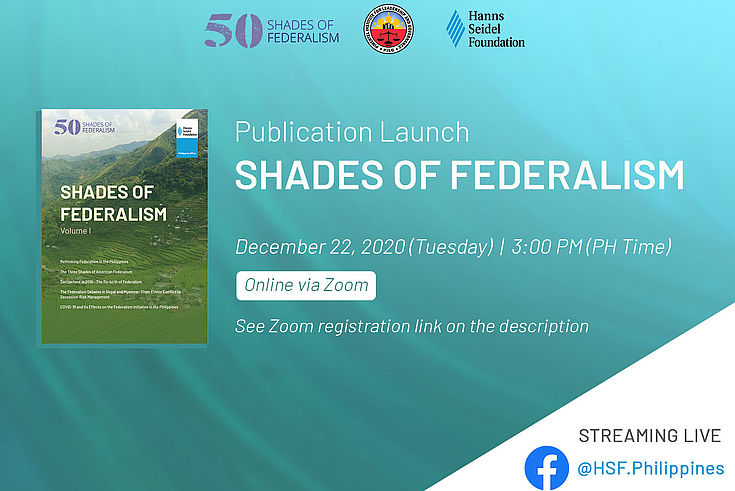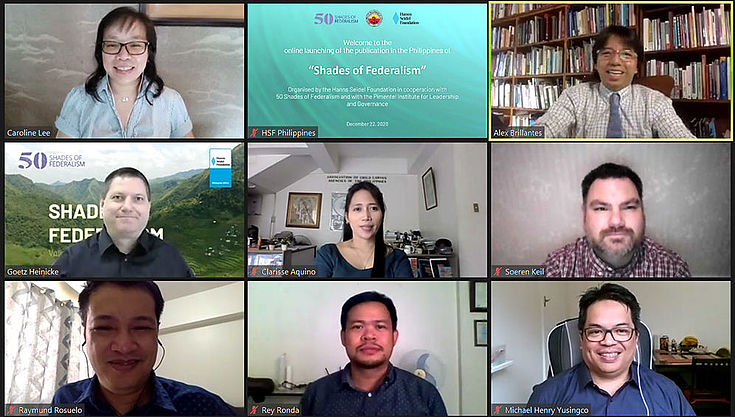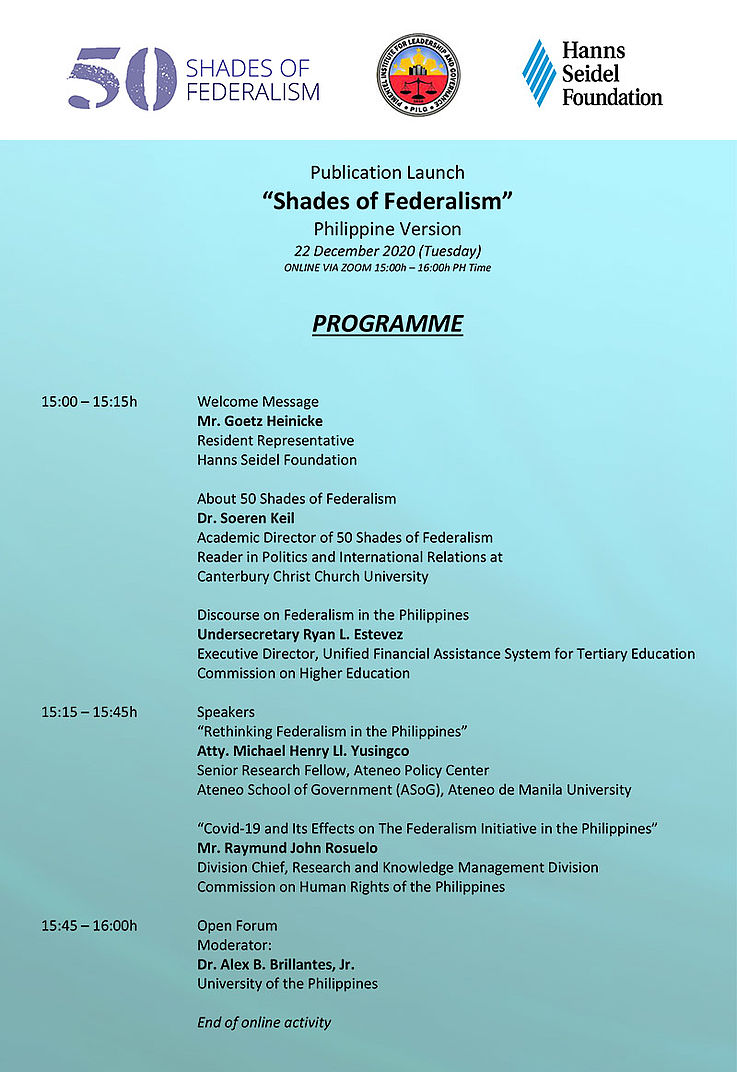Federalism Publication Online Launch
“Shades of Federalism” is introduced to Philippine academia and the public
HSF
The online launch of the publication Philippine version of “Shades of Federalism” was held to introduce academic literature to the Philippine public, specifically, the academia, with the idea of providing an easily accessible source of researched work carried out on the different dimensions of federalism and related concepts of devolution and decentralization based on existing conditions and systems in various countries across the world and in a short, digestible form.
The publication is intended to help raise awareness in the Philippines about federalism as a system of government, its basic principles and applications in other countries as well as initiate comparative discussions and exchanges on the topic in the Philippines, in the context of the Bayanihan Federal Constituted submitted to the Office of the President by the Consultative Committee and of more than a handful proposals from various groups and organisations suggesting to make changes to the Constitution.
Planned as the first of a series of volumes, the publication comprises a selection of five of the 50 Shades of Federalism papers (50shadesoffederalism.com), two of which are by Filipino authors who are also members of the Pimentel Institute for Leadership and Governance-Hanns Seidel Foundation Federalism Core Group.
“Today’s publication launch […] is also another opportunity for us to have a better understanding on the dynamics of federalism particularly in the Philippine context. This gives us just a start to freely access quality literature in one of the many future articles or discussions on federalism under the 50 Shades project.” - Usec. Ryan L. Estevez
"There has been substantial autonomy that has been provided to local government units in the Philippines. Legally, there are mechanisms. It’s right in the Constitution as well as statutes created following the ratification of the 1987 Constitution. Particularly, the1991 Local Government Code empowered local government units and as a result of this, a number of mostly… usually were national government functions are now being performed by local government units. So, while the Philippine is not technically a federal state, it features a number of characteristics that make it approximate that of a federal state." - Mr. Raymund John Rosuelo
Beyond bringing the topic to the awareness of the public, this activity and the publication being launched seek to bring the discussion on federalism to a level that is more meaningful and understandable to them. Held online via video conference on 22 December 2020, the activity was oragnised by the Hanns Seidel Foundation – Philippine Office jointly with 50 Shades of Federalism and the Pimentel Institute for Leadership and Governance (PILG). It had twenty logged-in participants aside from live-stream viewers.
HSF
The highlight was the discussion by two of the authors about their respective papers followed by an open forum in which questions from participants and from live-stream viewers were accommodated by them and by the representative from 50 Shades of Federalism. Key points discussed were: (a) How the Local Government Code of 1991 can be a starting point in pursuing decentralisation in the Philippines in order to bring it closer to federalism; and, (b) What the ongoing pandemic reveals about the federalism journey of the Philippines, noting especially actions taken by the central government vis-à-vis those initiated by local government units and what these say about the country’s federalism initiative.
Based on the questions raised, it may be noted that the public remains skeptical about the different proposals, partly due to the fact that the country has only ever described itself as having a unitary system of government and partly because of the lack of trust they have in the political personalities associated with the different reforms being proposed and changes being advocated, some of which go over and beyond the setting up of an arrangement of self-rule and shared rule in the Constitution, as pointed out by one of the speakers as what federalism is basically all about. Nevertheless, there remained an interest in learning more about federalism and how a “model” that would be ‘fit’ the Philippines and its Filipino people could be developed.
In sum, it was concluded that the benefits of any system of government, in this case, the federal system of government, may be reaped by the country and its people, only if it is functional and for this to happen, intervening factors, such as leadership and capacity, have to be taken into account and the differing social, cultural, economic and political contexts that come into play need to be considered.
Links
Watch the online launching at HSF Philippines Facebook page: https://fb.watch/2zQYeUe6Ak/
Download Shades of Federalism Publication



